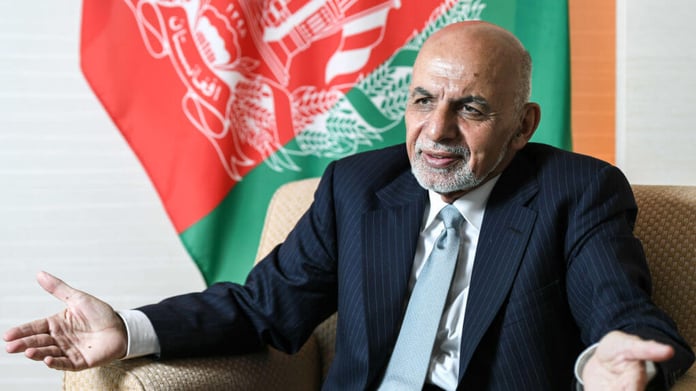When US Ambassador Zalmay Khalilzad entered the garden of the former Kabul Royal Palace on Monday afternoon, the controversial presidential election from late September 2019 was decided after more than six months. Khalilzad was accompanied by General Scott Miller, the commander-in-chief of all foreign troops in Afghanistan, and the heads of mission from the UN, the EU and important donor countries such as Germany.
When the chief diplomats took a seat, the previous president Mohammed Ashraf Ghani took his oath to the chief of the Supreme Court for his second five-year term.
With their presence, the diplomats gave Ghani the long-forgotten blessing of the international community. After his unilateral announcement as the election winner in mid-February, no one had congratulated him except the EU Commission, India and Kuwait.
But now Ghani’s previous head of government and most important election competitor, Abdullah Abdullah, was sworn in by a priest as president, but without international participation.
Messed up choice with the controversial result
This bizarre situation is the result of a messed up election, the result of which, despite a five-month count, has not been determined to the last. As a result, Ghani received 50.64 percent of the 1.8 million valid votes cast, Abdullah was a good 200,000 votes behind.
However, the validity of over 300,000 votes was controversial until the end. It is unclear whether they would have given Abdullah victory. But they would have led to a runoff election.
The mediation Khalilzad until early Monday led both ceremonies for several hours shift but were unsuccessful. Ghani offered Abdullah a 60-to-40 power split. But he wanted to remain head of government. Ghani declined because he wants to abolish the office – which was only introduced after the unsettled head-to-head race between the two after the 2014 election.
International community turns a blind eye
The power struggle shows the world that after 18 years of US-led intervention in Afghanistan, the political system is not working. By recognizing Ghani’s election victory, the international community decided to overlook it again and to circumvent the constitutional procedures.
Even if the country would have had further months of political uncertainty ahead of it, this is a disservice to Afghan democracy.
Ghani’s and Abdullah’s dispute is already in the way of agreeing on a team for peace talks with the Taliban. Negotiations should start this Tuesday, but must now be postponed.
Abdullah is unlikely to want to participate as a minority. This will undermine the legitimacy of the government delegation, which the Taliban should take advantage of.


